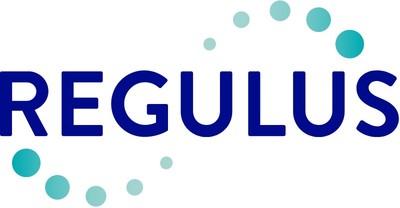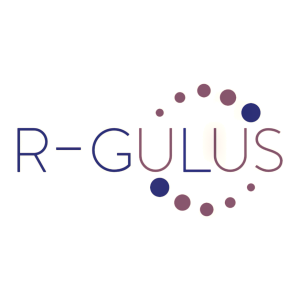Regulus Therapeutics Announces Expected Addition to the Russell 3000® and Russell 2000® Indexes
Regulus Therapeutics (Nasdaq: RGLS) announced its expected inclusion in the Russell 3000® and Russell 2000® Indexes effective July 1, 2024, according to a preliminary list. This annual reconstitution captures the 4,000 largest US stocks by market capitalization as of April 30, 2024. Membership in the Russell 3000® Index means automatic inclusion in the large-cap Russell 1000® or small-cap Russell 2000® Indexes as well as growth and value style indexes. CEO Jay Hagan highlighted this achievement as a reflection of the company's forward momentum and the value of its pipeline, including the RGLS8429 program for ADPKD treatment. Russell indexes are important benchmarks for investment managers, with approximately $10.5 trillion in assets benchmarked against them as of December 2023.
- Expected addition to the Russell 3000® and Russell 2000® Indexes signifies recognition of Regulus’s market capitalization.
- Effective inclusion date is July 1, 2024, enhancing the company’s visibility and credibility.
- Membership in the Russell 3000® Index ensures a year-long inclusion in relevant sub-indexes.
- CEO highlighted the achievement as a reflection of the company's forward momentum and the value of its pipeline, including RGLS8429 for ADPKD treatment.
- Russell indexes are widely used benchmarks, with $10.5 trillion in assets benchmarked, providing potential for increased investor interest.
- Inclusion in the index does not guarantee stock performance improvement.
- Market capitalization ranking as of April 30, 2024, might change, potentially altering inclusion status.
- The announcement does not provide specific financial metrics or upcoming milestones.
- No immediate direct financial impact mentioned from the index inclusion.
The annual Russell US Indexes reconstitution captures the 4,000 largest US stocks as of Tuesday, April 30th, ranking them by total market capitalization. Membership in the US all-cap Russell 3000® Index, which remains in place for one year, means automatic inclusion in the large-cap Russell 1000® Index or small-cap Russell 2000® Index as well as the appropriate growth and value style indexes. FTSE Russell determines membership for its Russell indexes primarily by objective, market-capitalization rankings, and style attributes.
"The addition of Regulus to the Russell indexes is an achievement that underscores the forward momentum of the company as a whole," said Jay Hagan, Chief Executive Officer of Regulus Therapeutics. "This update is also a reflection of the value of our pipeline, including our RGLS8429 program for the treatment of patients living with ADPKD."
Russell indexes are widely used by investment managers and institutional investors for index funds and as benchmarks for active investment strategies. According to the data as of the end of December 2023, about
Fiona Bassett, CEO of FTSE Russell, An LSEG Business, comments: "Russell indexes–now in their 40th year–continue to evolve to reflect the dynamic US economy. Annual rebalancing plays a vital role in establishing accurate benchmarks, ensuring they correctly mirror their designated market segments and remain unbiased in terms of size and style."
For more information on the Russell 3000® Index and the Russell indexes reconstitution, go to the "Russell Reconstitution" section on the FTSE Russell website.
About Regulus
Regulus Therapeutics Inc. (Nasdaq: RGLS) is a biopharmaceutical company focused on the discovery and development of innovative medicines targeting microRNAs. Regulus has leveraged its oligonucleotide drug discovery and development expertise to develop a pipeline complemented by a rich intellectual property estate in the microRNA field. Regulus maintains its corporate headquarters in
About FTSE Russell:
FTSE Russell is a leading global provider of benchmarking, analytics, and data solutions for investors, giving them a precise view of the market relevant to their investment process. A comprehensive range of reliable and accurate indexes provides investors worldwide with the tools they require to measure and benchmark markets across asset classes, styles, or strategies.
FTSE Russell index expertise and products are used extensively by institutional and retail investors globally. For over 30 years, leading asset owners, asset managers, ETF providers and investment banks have chosen FTSE Russell indexes to benchmark their investment performance and create ETFs, structured products, and index-based derivatives.
FTSE Russell is focused on applying the highest industry standards in index design and governance, employing transparent rules-based methodology informed by independent committees of leading market participants. FTSE Russell fully embraces the IOSCO Principles, and its Statement of Compliance has received independent assurance. Index innovation is driven by client needs and customer partnerships, allowing FTSE Russell to continually enhance the breadth, depth and reach of its offering.
FTSE Russell is wholly owned by London Stock Exchange Group.
For more information, visit https://www.lseg.com/en/ftse-russell.
Forward-Looking Statements
Statements contained in this presentation regarding matters that are not historical facts are "forward-looking statements" within the meaning of the Private Securities Litigation Reform Act of 1995, including statements associated with the Company's RGLS8429 program and preclinical pipeline, the expected timing for completing clinical studies, potentially achieving therapeutic efficacy and clinical translation for patients, the expected timing for reporting topline data, and the timing and future occurrence of other preclinical and clinical activities. Because such statements are subject to risks and uncertainties, actual results may differ materially from those expressed or implied by such forward-looking statements. Words such as "believes," "anticipates," "plans," "expects," "intends," "will," "goal," "potential" and similar expressions are intended to identify forward-looking statements. These forward-looking statements are based upon Regulus' current expectations and involve assumptions that may never materialize or may prove to be incorrect. Actual results and the timing of events could differ materially from those anticipated in such forward-looking statements as a result of various risks and uncertainties, which include, without limitation, the approach we are taking to discover and develop drugs is novel and may never lead to marketable products, preliminary or initial results may not be indicative of future results, preclinical and clinical studies may not be successful, risks related to regulatory review and approval, risks related to our reliance on third-party collaborators and other third parties, risks related to intellectual property, risks associated with the process of discovering, developing and commercializing drugs that are safe and effective for use as human therapeutics and in the endeavor of building a business around such drugs, and the risk additional toxicology data may be negative and our need for additional capital. These and other risks are described in additional detail in Regulus' filings with the Securities and Exchange Commission, including under the "Risk Factors" heading of Regulus' most recently filed quarterly report on Form 10-Q. All forward-looking statements contained in this press release speak only as of the date on which they were made. Regulus undertakes no obligation to update such statements to reflect events that occur or circumstances that exist after the date on which they were made.
![]() View original content to download multimedia:https://www.prnewswire.com/news-releases/regulus-therapeutics-announces-expected-addition-to-the-russell-3000-and-russell-2000-indexes-302162634.html
View original content to download multimedia:https://www.prnewswire.com/news-releases/regulus-therapeutics-announces-expected-addition-to-the-russell-3000-and-russell-2000-indexes-302162634.html
SOURCE Regulus Therapeutics Inc.








